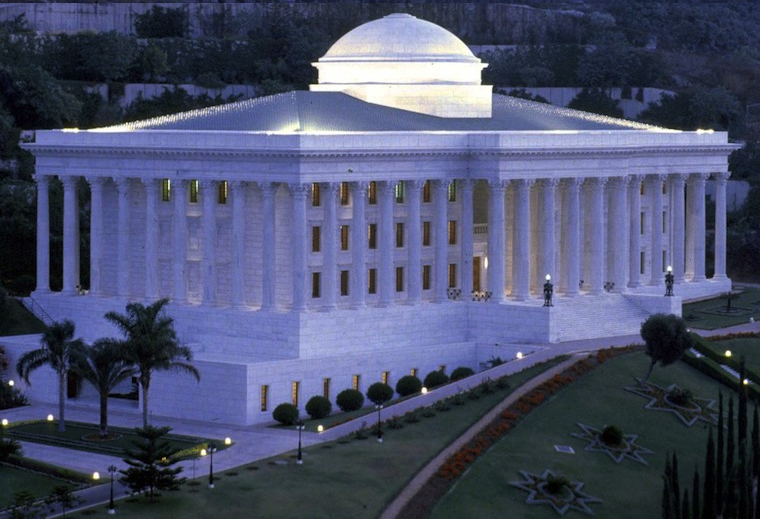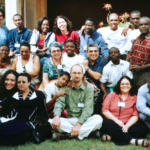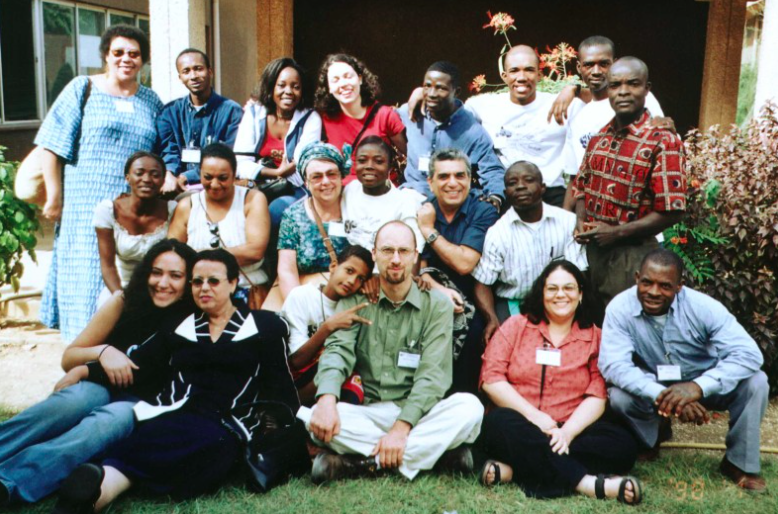
Systems Thinking in Bahá’u’lláh’s Teachings

The technological age in which we live is founded, among other things, on an analytical way of understanding the world. At the risk of over-simplification, reality is broken into discrete parts which can be understood in isolation from each other. For certain problem types, it is a very useful way of thinking that has produced many beneficial results. That success needs to be frankly acknowledged — as it has contributed enormously, if unevenly, to human welfare.
But, like all that we human beings do, an analytic way of thinking is not perfect and it has drawbacks. For example, the creation of an item of technology to solve a certain problem sometimes results in unanticipated consequences which were left outside the scope of analysis. We may think of environmental pollution as an example of this, or social isolation arising from an increasing separation between economic activity and social life.
An associated issue is that “analytical” thinking is (incorrectly) equated with being rational and other ways of thought can be discounted or their potential unrealised.
Systems thinking is such an alternative way of understanding the world. For certain problem types it is essential – as experience has shown us that analytical approaches quickly become unworkable. For example for modelling the global climate or the stock market or even complex fluid flow. From the 20th century onwards scientists and others began to recognise the importance of systems thinking and began to study reality from a systems viewpoint.
Systems, it turns out, have some unexpected characteristics, if we are used to thinking of the world in an “analytical” way. And, in turns out, they can’t be described in a simple way. A definition in a few words won’t adequately describe a system. Systems are complex. We have to see the system at multiple levels of description at the same time. To describe them we have to “synthesise” knowledge. Systems are often adaptive – they interact with other systems and processes around them. They cannot be computed in advance. In other words, a simple formula won’t tell us what a system will do. Often we need to build a model of the system and run the model to see what the system will do in certain circumstances. The better our model the more accurate our understanding of its potential behaviour. Systems have “emergent” properties – these are properties that can’t be observed or predicted by looking at individual parts of the system. For example, the way birds flock is built from simple rules. However, those simple rules don’t describe flocking. Systems have unpredictable tipping points. If enough “stress” is put on a system it will suddenly move to an entirely new state. For example, the way ice will transition to liquid or gas. Often systems arise from the interactions or actions of many individual agents or components of a system. (Molecules in a gas, rain drops in a weather system, market traders in a stock market, or ants in an ant nest). Systems change in non-linear ways. Systems are “path dependent” – that is once a certain event or change occurs, the system cannot be easily “rolled back” to its previous state, it has to continue to evolve based on preceding pathway. Living beings can be thought of as organic systems – which also display the kinds of characteristics described above. In addition, they “grow” and “evolve” over time. For example, a seed which transitions to a sapling and then matures into a fruit bearing tree. In a way that we find mysterious such systems suddenly change in response to their previous development and environmental input. They have “latent” properties that are unpredictable from an earlier state of the system — but which are inevitably connected with it.
When Baha’u’llah uses the term “systems” in his writings, we quickly find that in fact, such elements are implicit in what he states. In the Kitab-i-Aqdas we find:
The world’s equilibrium hath been upset through the vibrating influence of this most great, this new World Order. Mankind’s ordered life hath been revolutionized through the agency of this unique, this wondrous System—the like of which mortal eyes have never witnessed.[1]
Here are some of the characteristic elements of system thinking as it emerged in the 20th century – equilibria and tipping points.
Elsewhere Bahá’u’lláh refers to religions in general as “systems”:
… that the divers communions of the earth, and the manifold systems of religious belief, should never be allowed to foster the feelings of animosity among men, is, in this Day, of the essence of the Faith of God and His Religion. These principles and laws, these firmly-established and mighty systems, have proceeded from one Source, and are rays of one Light.[2]
In the following quotation from Bahá’u’lláh’s writings we have an essentially organic and systemic description of the world. As described in a previous article “the oneness of humanity” is a latent characteristic predicted for this system by Bahá’u’lláh. We can also see that the external input to this system is spiritual.
“The whole earth … is now in a state of pregnancy. The day is approaching when it will have yielded its noblest fruits, when from it will have sprung forth the loftiest trees, the most enchanting blossoms, the most heavenly blessings. Immeasurably exalted is the breeze that wafteth from the garment of thy Lord, the Glorified! For lo, it hath breathed its fragrance and made all things new![3]
In relation to humanity as well, a systems viewpoint is adopted — for a human body, as Bahá’u’lláh describes humanity, is a system.
In a previous article, we saw actions by individual sovereigns resulting in a tipping point they were unable to predict: the downfall of their own regimes.
Even the Word of God can be thought of in a systemic way, for it is likened to an organic system – “a sapling, whose roots have been implanted in the hearts of men” and whose branches potentially “spread out as high as the heavens and beyond”.
(This article is the 155th in a series of what I hope will be 200 articles in 200 days for the 200th anniversary of the birth of Bahá’u’lláh. The anniversary is being celebrated around the world on 21 and 22 October 2017, The articles are simply my personal reflections on Bahá’u’lláh’s life and work. Any errors or inadequacies in these articles are solely my responsibility.)









One Comment
Denise
Awesome!